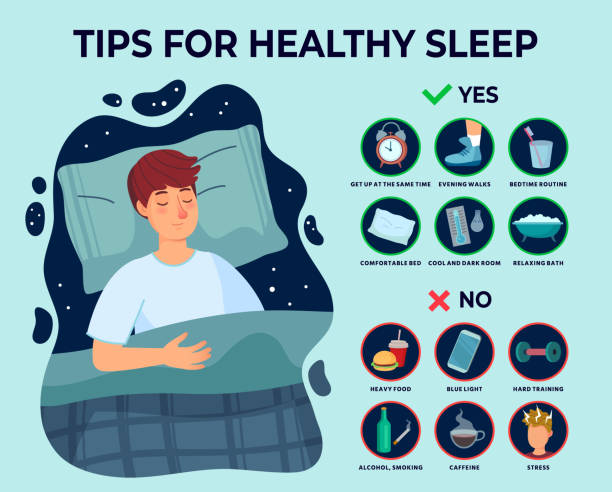
5 Sleep Tips for Better Stress Management
April 27, 2024Struggling with stress? Discover 5 sleep tips that will revolutionize your stress management routine and improve your overall wellbeing.

Image courtesy of lea bonzer via Pexels
Table of Contents
Introduction: Why Good Sleep Matters for Stress
We’ll start by exploring why sleep is important and how it helps us manage stress and feel happy.
Understanding Stress
What is stress and how does it affect our bodies and minds?
The Role of Sleep
How does getting enough sleep help our brains and make stress easier to handle?
Create a Sleep Schedule
Learn how to make a sleep plan so your body knows when it’s time to rest.
Setting a Bedtime
Choosing the same time for bed each night can help your body get ready for sleep. When you go to bed at a consistent time, your body learns when it needs to wind down and get ready for rest. This regular schedule can make falling asleep easier and help you get the right amount of sleep your body needs to feel refreshed in the morning.
Waking Up Routine
Getting up at the same time each morning can make your day start better. Just like having a set bedtime, having a regular wake-up time helps your body establish a healthy sleep routine. When you wake up at the same time every day, your body gets used to this schedule, making it easier to feel alert and ready to tackle the day ahead. Consistency in both your bedtime and wake-up time can improve your overall sleep quality and help you feel more energized throughout the day.
Make Your Bedroom Sleep-Friendly
Having a dark and quiet room can make it easier for you to fall asleep. Try using dark curtains to block out any light from outside. You can also ask your parents to keep the noise level down in the house while you are getting ready for bed. This way, your brain can relax and prepare for a good night’s sleep.

Image courtesy of www.pinterest.com via Google Images
The Right Temperature
It’s important to find the perfect temperature for your bedroom to help you sleep better. Make sure it’s not too hot or too cold. You can adjust the thermostat or use blankets to stay cozy. When your room is at a comfortable temperature, your body can relax and drift off to dreamland more easily.
Relax Before Bedtime
If you find yourself tossing and turning in bed, trying to quiet your busy mind, reading a book might be the perfect solution. A captivating story can transport you to a different world, away from your worries and stress. As you focus on the words on the page, your brain starts to slow down, preparing you for a restful night’s sleep.
Breathing Exercises
One simple and effective way to relax before bedtime is through breathing exercises. Close your eyes and take slow, deep breaths in through your nose and out through your mouth. Feel your chest rise and fall with each breath, and try to release any tension in your body as you exhale. This calming practice can help quiet your mind and prepare you for a peaceful night’s rest.
Be Careful with Food and Drinks
It’s important to be mindful of what you eat and drink before bedtime to ensure a good night’s rest. Certain foods and beverages can either help you fall asleep easier or keep you tossing and turning. Let’s take a closer look at how your snacking choices can affect your sleep.
Snack Smart
When it comes to bedtime snacks, it’s best to opt for light and easy-to-digest options. Avoiding heavy, greasy, or spicy foods close to bedtime can help prevent indigestion and discomfort that may disrupt your sleep. Instead, consider snacks like a small bowl of cereal, a banana, or a handful of nuts, which are gentle on your stomach and won’t interfere with your sleep.
Drinks That Help You Sleep
Some beverages can have a calming effect on your body and promote relaxation, making it easier for you to drift off to sleep. Herbal teas like chamomile or warm milk are known for their soothing properties and can help you unwind before bedtime. On the other hand, it’s best to steer clear of caffeinated drinks such as coffee, tea, or soda in the evening, as they can disrupt your natural sleep cycle and keep you awake when you should be winding down.
Stay Active During the Day
Do you love running around, playing sports, or riding your bike? Well, guess what? All that fun and movement during the day can actually help you sleep better at night! When you stay active and play outside, your body gets tired, and it prepares itself for a good night’s sleep. So, don’t forget to add some exercise and outdoor play to your daily routine!
Avoiding Naps Late in the Day
Naps can be super refreshing, especially after a long day at school or playing outside. But be careful not to take naps too late in the day. Napping close to bedtime can make it hard for you to fall asleep at night. So, try to avoid napping in the late afternoon or evening. Instead, save your nap for earlier in the day so that you can still get a good night’s rest when bedtime rolls around.
Conclusion: Putting It All Together
In conclusion, good sleep is crucial for managing stress, improving mental well-being, and enhancing personal growth. By following the five sleep tips discussed, you can create a positive impact on your overall health and productivity.
Review of Sleep Tips
Throughout this blog post, we have explored various ways to improve your sleep quality and reduce stress. From creating a sleep schedule to making your bedroom sleep-friendly, each tip plays a vital role in promoting better sleep habits. Relaxing before bedtime, being mindful of your food and drink choices, and staying active during the day are all essential components in achieving a restful night’s sleep.
Starting Tonight
Now that you have learned these valuable sleep tips, it’s time to put them into practice. Begin by establishing a consistent sleep schedule, setting a bedtime, and creating a relaxing bedtime routine. Make your bedroom a tranquil and comfortable space, free of distractions. Engage in calming activities before bed, avoid stimulating foods and drinks, and stay active during the day.
By incorporating these tips into your daily routine, you can optimize your sleep patterns, manage stress more effectively, and enhance your overall well-being. Remember, a good night’s sleep is key to a happier and healthier you!










